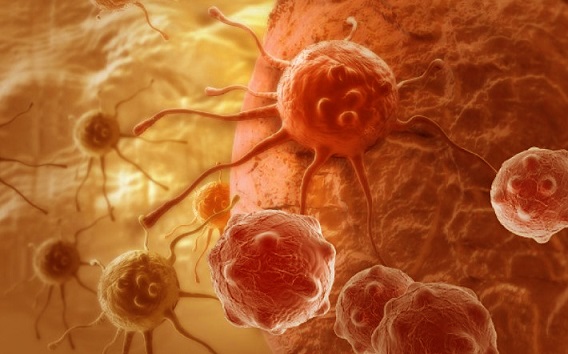Nikhil Prasad Fact checked by:Thailand Medical News Team Nov 16, 2025 3 months, 1 week, 1 day, 23 hours, 40 minutes ago
Medical News: A New Look at Breast Cancer Biology
A growing body of scientific evidence is revealing that tiny natural molecules in the body called peptides may play a far bigger role in breast cancer development and progression than previously believed. The latest research, carried out by scientists from the Institute of Neurosciences of Castilla and León at the University of Salamanca in Spain, The University of Texas MD Anderson Cancer Center in the United States, the Virgen del Rocío University Hospital in Sevilla and the University of Salamanca’s GIR USAL BMD Group, highlights how these peptide systems could offer powerful new diagnostic tools and treatment strategies. This
Medical News report draws from the study to help ordinary readers understand why these findings matter.
 New research shows that peptide signaling systems may hold the key to future breakthroughs
New research shows that peptide signaling systems may hold the key to future breakthroughs
in breast cancer treatment and diagnosis
How Peptides Influence Breast Cancer
Peptides act as signaling messengers that help cells communicate, grow, divide, move and survive. In healthy tissues these signals are balanced, but in breast cancer the system becomes distorted. Many breast cancer cells carry unusually high numbers of peptide receptors on their surfaces, making them extra responsive to peptide signals that may encourage tumor growth, spread or survival.
What makes the new research especially interesting is the discovery that some peptides can push cancer to grow, while others may stop it, and some even do both depending on the exact situation inside the tumor. This opens the door to targeted treatments that block harmful peptides or use helpful ones to deliver cancer-killing agents straight into tumor cells.
Key Findings from the Study
Scientists reviewed dozens of peptide families and found that several groups strongly influence how breast cancer behaves. Oncogenic peptides such as adrenomedullin 2, endothelin, gastrin-releasing peptide, neurokinin A, neuromedin, neuropeptide Y, neurotensin, substance P and vasoactive intestinal peptide were shown to enhance tumor growth, produce new blood vessels and increase the ability of cancer cells to invade and spread.
At the same time, other peptides including angiotensin 1–7, ghrelin and peptide YY demonstrated cancer-suppressing effects, slowing tumor growth, reducing inflammation, or encouraging cancer cells to self-destruct. Even more intriguing were peptides like adrenomedullin, angiotensin II, bradykinin, corticotropin-releasing factor, β-endorphin, glucagon-like peptide 1, gonadotropin-releasing hormone, kisspeptin, methionine-enkephalin and oxytocin, which can promote or suppress tumors depending on the receptor involved and the surrounding conditions.
Researchers also emphasized that drugs targeting these peptide systems already exist, and many—such as GLP-1 agonists, GnRH agonists or antagonists, and neurokinin-1 receptor blockers—could potentially be repurposed for breast cancer therapy.
&l
t;strong>Conclusion
This study highlights a rapidly evolving field that may reshape breast cancer treatment in the near future. By mapping how different peptides and their receptors drive or suppress tumor behavior, scientists are uncovering new ways to diagnose cancers earlier and design therapies that precisely target the most dangerous molecular pathways. The findings also show that peptide-based drugs, whether blocking harmful signals or delivering anticancer compounds, hold real promise for more effective and less toxic treatments. As research expands, it is becoming increasingly clear that mastering peptidergic systems could transform the future of breast cancer care and offer patients more personalized and innovative therapeutic options.
The study findings were published in the peer reviewed journal: Cancers.
https://www.mdpi.com/2072-6694/17/22/3662
For the latest on Breast Cancer, keep on logging to Thailand
Medical News.
Read Also:
https://www.thailandmedical.news/articles/cancer
